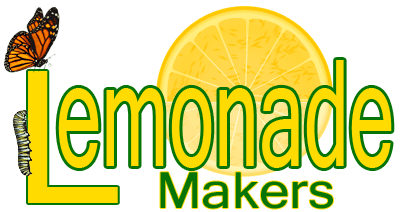Living Your Life From A Place Of Curiosity
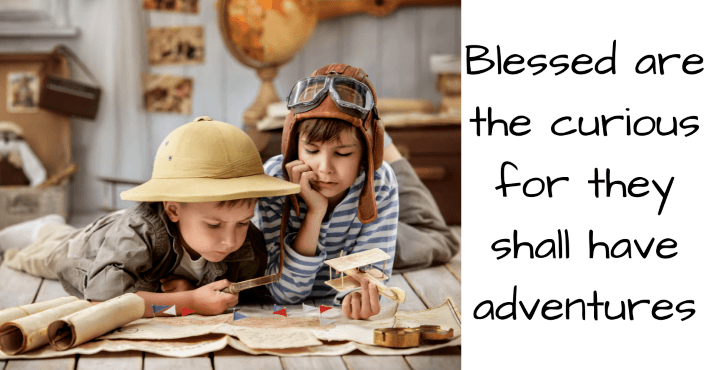
Albert Einstein traced the root of his accomplishments to curiosity. What triggered Sir Isaac Newton to discover gravity from a falling apple, as apples had been falling from trees hundreds of years. Had no one ever got curious as to why the apples fell in a downward motion? How much of the world around you, do you observe with wonder?
Awe is a part of wonder and curiosity. Psychology Today has described awe as “an overwhelming, self-transcendent sense of wonder and reverence in which you feel a part of something that is vast, larger than you and that transcends your understanding of the world.”
Taking a walk in nature can result in being awestruck. I love that word. If I am going to be struck with something, please let it be awe. To suddenly see something with new eyes will send you off with a sense of adventure. To me it is like the photo of these two boys. They will question everything they see. They haven’t yet entered into the age where they think they already know everything. They will ask a lot of “why” questions seeking to understand. They will see things in a different way, because they don’t yet know the “rules” of how something is supposed to work. And that is where the sense of discovery, wonder, and curiosity begins. It is the beginning of an adventure.
“Noticing the world as constantly changing can help us dance with the flow of life.” – Sarah Jane Shangraw
In reading an issue of Mindfulness Magazine, they stated the following steps in taking a walk in nature what will bring “awe” into your life.
- turn off the electronics on your person.
- believe you are going to experience awe during your walk
- use all of your senses in discovering that sense of awe
- go someplace different – a new park, or a different path
- look at the details, see the veins of the leaves, the depressions in the bark or look up into the higher branches instead of just seeing what’s at eye lever
- slow down, powerwalking is not a voyage of discovery
- pay attention to the details, listen into what you thought was silence and hear the breeze stir the leaves, rattle the branches or hear the small creatures digging into a hiding place
Curiosity and exploration floods your brains with dopamine, which makes you feel happier. It gives you higher levels of positive emotions, lower levels of anxiety, and greater satisfaction with your life. It’s a skill that can be developed. It is a habit of applying wonder, and feeding your desire to learn more.
Curious people want to try new things – so next time you go to a restaurant, try a food you have never eaten before. Curiosity begins with asking questions. In searching for different answers. In making a new or different connection. In taking what you discover and using it to make sense of your newly expanded world.
“Becoming happier is one of the most vital and momentous things that you can do for yourself and those around you.” – Sonja Lyumbomirsky
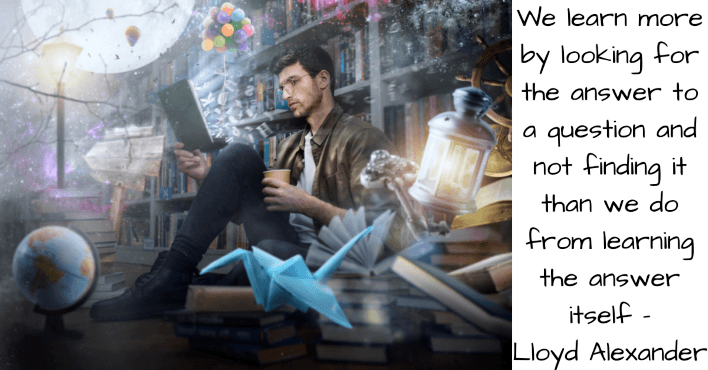
Some adults think that asking questions somehow implies they lack knowledge. But what I have found through the years, especially with the meanings and emotions triggered by words, is that there are a lot of words that I think are communicating one thing, but were received as another. Words can have more than one meaning. So I try to communicate what I have to say, using a lot of examples and analogy’s. Then I watch how it lands. If it seems to have landed wrong, I then use another analogy. I keep doing this until I know that what I meant, is what is understood. I ask a lot of questions, seeking understanding and connection.
Asking yourself the right questions can make a huge difference in how happy you are. We can train our brain to look for answers by asking it to focus on a certain task. If you ask yourself these three key questions everyday, your brain will step outside of the negative self judging that your mind tracks down. These questions will help rewire your brain to focus on the positive.
- What have I done well in the last 24 hrs? (Celebrate it!)
- What is one thing I want to improve in the next 24 hrs? (Discover, investigate from a place of curiosity, not judgment)
- What is one action step I can take to help make this happen? (Curiosity, ask more “how” questions)
Curiosity is a strength within the virtue category of wisdom, one of the six virtues as described in Positive Psychology. The other strengths in the wisdom category are creativity, judgment, love of learning and perspective. According to Wharton University, curiosity has a genetic component, which can be grown or limited according to ones environment.
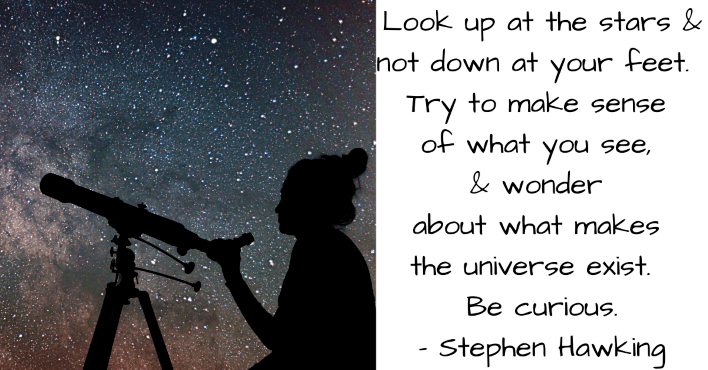
NASA’s rover on Mars is named Curiosity. She’s been on Mars since 2012 and since her battery is thought to be able to last for only 14 years, she’s nearing the end of her lifespan. NASA is looking for answers by collecting data on Mars.
It will certainly be interesting to see what they discover in that adventure – answers they were looking for – did Mars ever have the proper conditions for life to survive. So far they’ve discovered that Mars had sulfur, nitrogen, oxygen, phosphorus and carbon – all key ingredients for life. What things will be discovered that no one knew to ask?
From Britannica Curiosity Compass, “10 Ways to Improve Your Curiosity”
- Power up your passion – doing what you love keeps those curiosity juices flowing
- Ask awesome questions – “tell me more about that”, “why do you believe that or why is that important to you” – then listen with an open mind/heart
- Teach and be taught – ask about someone’s most treasured memory, their biggest passion, favorite hobby – all of which helps you to “know” something about someone. It stirs your curiosity to learn more. It opens doors to others teaching you something new, to learn about something in a new way
- Connect the dots – how can you use the fundamentals from a game or the basic elements of cooking in other areas of your life?
- Walk it out – taking a walk stirs your natural curiosity and stimulates your senses
- Get uncomfortable – Try something new. Push yourself to do the thing you are scared of trying.
- Embrace thine enemy – Part of being a critical thinker is understanding the other persons viewpoint – argue both for and against all of your beliefs. You will gain empathy and learn something new about your own beliefs.
- Tech Time-out – play a musical instrument; drawing; cooking; any hobby that doesn’t involved a screen.
- Explore your environment – walk in a new direction; check out a park; hike in the woods. Get to know something new.
- Mirror, Mirror on the wall…, – Reflection is also an important part of having a curious mind. Through reflection comes a higher understanding and brings you even more curiosity.
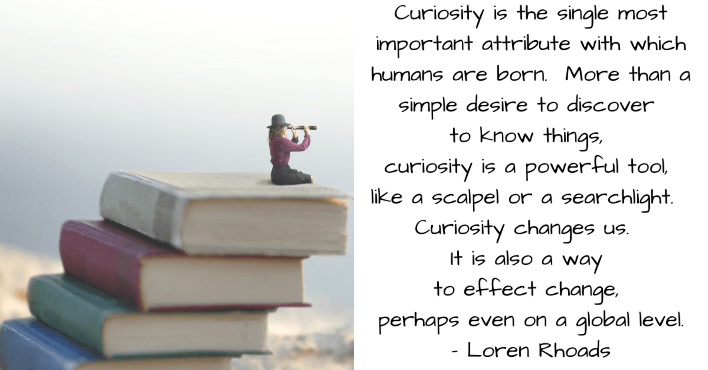
Curiosity makes your brain more receptive for learning. It is like a muscle and the more you use it the stronger your mind becomes. When you are curious, your mind expects and anticipates new ideas related to what you are curious about.
One of my favorite things about Jim Rohn was when he would get this look on his face, with his hand on his chin and say, “I wonder what happens next?” It was his way of not going into negative emotions when something you might judge as a bad experience happened. He used the analogy, when someone cuts you off driving down the road – instead of getting angry, say “I wonder what happens next?” I started saying, “Thank you for getting in front of me, because you are in a hurry and I don’t want to be the person you rear end when you follow to close.” This is because I have been rear-ended several times and gotten hurt twice. So I am truly grateful when this kind of driver passes me, even if he is cutting me off.
So using curiosity, and “I wonder what happens next?” thinking – what things happen in your life, could you turn around from a negative experience? How instead, could you turn it around, staying calm and centered in wonder?
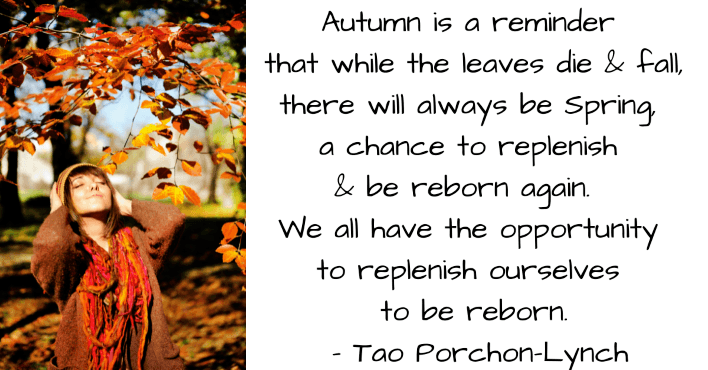
Life is full of change. Seasons change. You change. Use the fall season to complete and release what no longer serves you. Use the winter season to rest, digest and restore yourself. Use the spring season to get curious about what new things can you seed into your life to grow you as a person. Use the summer season as a time to harvest the new beginnings that you started in the spring.
So go on some new adventures. Ask open ended questions. Listen intently and ask others why this is so important to them? Give others experiences instead of things. Learn a new hobby. Go on long walks, listening, looking, smelling, – using all of the senses to discover what you have missed. Live a full, happy life!
